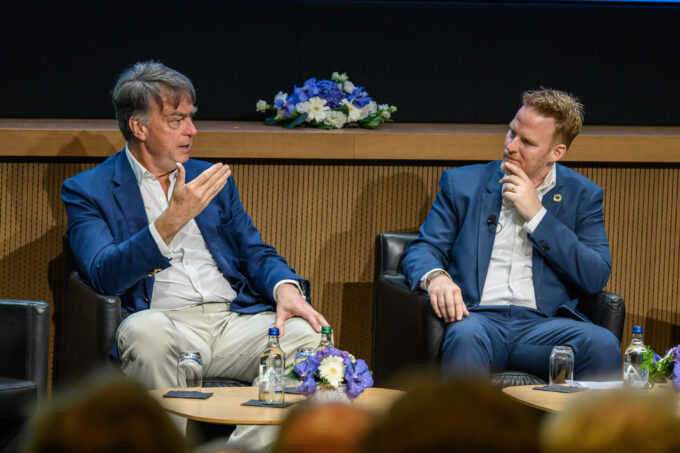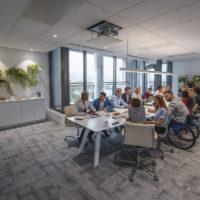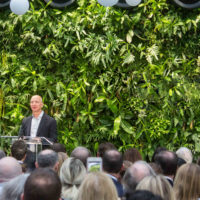Empowering change on a local level
It’s not just multinationals that have the power to drive change. Smaller organizations, such as startups, also have a role to play in dismantling the status quo and changing the system step by step.
Frederic James Gentizon, CEO of Innergia, a local, renewable-energy cooperative, challenged the notion that the average individual cares about climate change. Instead, his company has put a different lens on the issue by focusing on the threat of power shortages to help empower local communities to become independent by producing their own sources of renewable energy. “The idea is to put people back in balance with their local resources,” he explained.
Hoffmann agreed that collaboration across stakeholders will be necessary. “Planetary limits and social systems are absolutely linked. We won’t bring about a long-term change about how we consume resources if we don’t address social issues,” he said.
The role of regulation in driving systems change
All panelists agreed that regulation will be crucial in driving systems change so that businesses start to internalize social and environmental costs into the price rather than being rewarded for producing at the lowest cost regardless of the impact on nature and society.
Effective regulation should foster a partnership between the private sector and regulators to create value, rather than merely imposing restrictions or encouraging businesses to bypass rules, said Hoffmann.
“In order to change the system,we need an economic system based on added value,” added Gentizon.
Circularity as a driver for sustainable innovation
For those who may still be questioning whether sustainable business models can truly be profitable, Holcim’s Forrest had a heartening message. Its circular technology platform, which involves turning demolition waste into building materials, has become one of its most profitable business lines, highlighting how moving away from a “take-make-waste” business model can give you a sustainable edge.
“If you can make that happen at scale, you can unlock a lot of value,” she emphasized.
People will be central to the new nature of business
Summarizing the discussion, IMD President David Bach said an overriding theme had been the centrality of people in the new nature of business, from visionary leaders to initiatives at the local level.
“In some ways that may seem like bad news, because it’s hard for people to change. But I think it is good news because people can change the system. It’s as simple as that,” he said. “The technology is not holding us back. Nature is not holding us back. We’re holding ourselves back. Which is why the conversation triggered by this book is so important.”
Audio available










